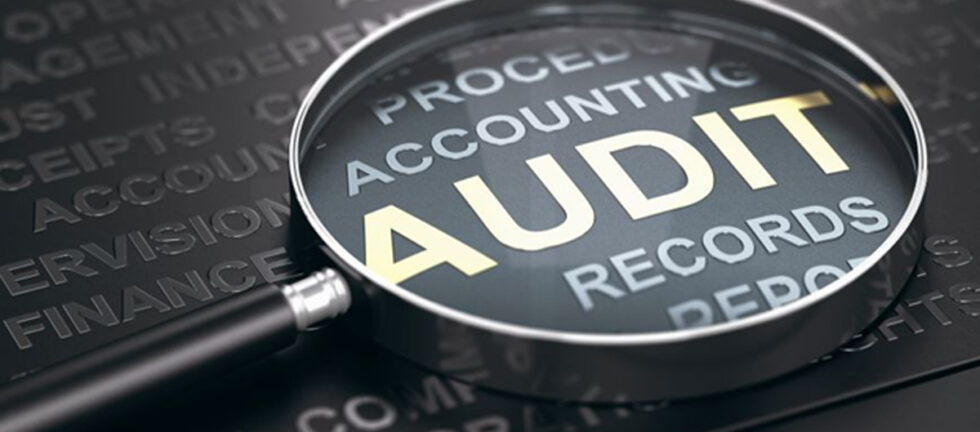Generally, businesses are most useful to money launderers as conduits for tainted funds. Since money launderers usually don’t expropriate assets, they seldom leave evidence of their activity on financial statements, making it difficult to detect their illegitimate activities during conventional audits. The methods used by money launderers in legitimising illegal funding keep evolving and the perpetrators use sophisticated methods for laundering money.
Due to the nature of their business of examining accounts, books, records, papers, policies, and procedures of their clients, the Audit professionals are in a unique position to identify potential money laundering risk and detect potentially suspicious activities. It is therefore vital that audit professionals understand their obligations under the Anti Money Laundering Law in UAE.
WHAT DOES AN AUDIT ACTUALLY INVOLVE?
In general, auditors provide the following services:
- Review and audit financial accounts and give advice according to the accounting and auditing standards
- Prepare reports on financial statements, balance sheets, annual and periodic accounts of their clients.
- Provide expertise, advice and studies in financial, economic and taxation fields.
- Liquidation activities.
COMMON MONEY LAUNDERING THREATS AUDITORS MUST BE AWARE OF ARE.
- Concealing or disgusting the identity of the ultimate beneficial owner (UBO)
- Concealing or disguising the illegal source of funds involved
- Transferring or extracting value or utility from the assets for the benefit of the criminal perpetrators
MONEY LAUNDERING SIGNS TO WATCH OUT
Even though it is difficult to detect money laundering in practice, several signs that the organization being audited could be committing fraud tend to involve:
- A sophisticated corporate structure where complexity does not appear to be required
- When significant quantities of money are exchanged in an unusual way
- If there is limited information or explanations, or where explanations are inadequate
- Transactions happened outside the ordinary course of business
- In the normal conduct of business, transactions happen with little financial sense
ML/FT THREATS
Many of the top (high and medium-high) ML/FT threats identified by the NRA may involve legal entities and should therefore be of concern to auditors. Among these are ML/FT threats related to the following predicate offences:
- Fraud
- Counterfeiting and Piracy of Product
- Professional third-party Money Laundering
- Insider Trading and Market Manipulation
- Tax crimes (related to direct taxes and indirect taxes)
The sectors most vulnerable to the identified threats include:
- Banking
- Money Service Business/Exchange Houses
- Dealers in Precious Metals and Stones
- Lawyers, Notaries and other independent legal professionals
- Real Estate Agents
- Company Service Providers
- Financial Advisors/Consultancy, Investment Fund/Asset Management, Brokers and
- Agents
- Credit Providers (Finance Companies)
WHAT ARE THE AUDITORS’ ACTIVITIES THAT ARE SUBJECT TO AML/CFT COMPLIANCE REQUIREMENTS?
As per Cabinet Decision No. (10) of 2019 Concerning the Implementing Regulation of Decree Law No. (20) of 2018 On Anti-Money Laundering and Combating the Financing of Terrorism and Illegal Organisations, auditors shall be subject to the obligations stipulated in the Law when they arrange, execute or conduct transactions on behalf of, or for, their customers in relation to any of the following activities:
- Purchase or sale of real estate: As the transfer of the real estate ownership is used to cover the illicit funds transfer (layering phase of ML indicated below) or the final investment of the proceeds passed through laundering operations (integration phase).
- Management of the customer’s funds, securities or other assets.
- Management of bank accounts, saving accounts or securities accounts: such as execution of financial transactions on behalf of customers, like cash deposit or withdrawal, foreign currency exchange operations, sale and purchase of shares, or sending and receiving international money transfers.
- Organizing contributions for the establishment, operation or management of companies or other entities.
- Establishment, operation or management of legal persons or legal arrangements, and sale or purchase of business entities: whereas the establishment of companies or other complex legal arrangements (like trusts) may conceal the link between the proceeds of the crimes and the criminals
GUIDELINE AND RECOMENDATION TO COMBAT FOR AUDITORS
As per Cabinet Decision No. (10) of 2019 Concerning the Implementing Regulation of Decree Law No. (20) of 2018 On Anti-Money Laundering and Combating the Financing of Terrorism and Illegal Organisations stipulates the need for regulated businesses to have adequate policies, procedures, and processes in place to prevent money laundering and terrorist financing.
The five main areas include:
- Adequate policies and procedures
- Customer Due Diligence
- Risk identification and assessment for mitigation
- Disclosure of Suspicious Activities
- Record Keeping
1. Development of an AML/CFT Programme:
Auditors shall develop an AML/CFT programme, considering AML/CFT risks; size, complexity and nature of the businesses. The design and implementation of such compliance programme is a prerequisite to ensure compliance with the provisions of the AML/CFT Law and meeting all the obligations related to the verification of the customers’ identity, record- keeping and reporting.
2. Applying Customer Due Diligence measures:
Before entering into any kind of business relation with the client the auditors must conduct a strict background check of their clients which may be concerned with their own AML obligation or with the obligation of their clients. The auditors must verify all the information about their client with all the available sources which must be reliable and free from bias and personal judgment. Auditors must maintain a procedure of screening their old and prospective clients and ensure that they are not associated with any kind of fraudulent activities.
3. Risk identification and assessment for mitigation and management:
Risks must be assessed in two prospective:
- Auditors must assess and identify their own risks related to the nature and type of their client.
- Their obligation to assess and identify the risk of their clients when they are specifically appointed to perform such functions.
The auditor shall identify, understand, assess, and mitigate ML and TF risks. Since ML and TF risks are not the same in every case, a risk identification and assessment-based approach should be adopted in order to focus on high-risks (specifically CDD measures) in order to ensure effectiveness.
The auditor should consider the risks identified in the National Risk Assessment, in addition to the Risk factors related to customers, beneficial owners of customers, and the beneficiaries of customers’ transactions.
4. Reporting Suspicious Transactions:
Auditors must monitor all the activities performed by their clients. They must report any kind of suspicious transactions or activities to the Federal Intelligence Unit (FIU). goAML is a medium and platform through which the auditors can report and inform the FIU about any kind of suspicious transactions made by the clients.
5. Record Keeping:
Pursuant to the AML/CFT Law, the auditor shall keep records, documents and evidences supporting his compliance with such obligations. In practice, the auditor shall keep records as evidence of his compliance with the AML/CFT Law and its Implementing Regulations, specifically adopting and implementing the risk-based approach to mitigate risks, conduct CDD measures and ongoing monitoring.
Such records, include but not limited to:
- Documents and data obtained through CDD measures.
- Account files.
- Business correspondence with the customer.
- Results of the STRs analysis undertaken.
AML COMPLIANCE AUDIT SERVICES
Auditing does not need to be intrusive and time consuming. Ahmad Alagbari Chartered Accountants expert team will work with businesses as an outsource partner to all auditing or provide an independent addition to their existing auditing functions.
Ahmad Alagbari Chartered Accountants experts can help you by providing following services
- AML Health Check
- AML compliance Audit
- AML Business Risk Assessments
- Develop AML Policy & Procedures
- Develop Compliance Mechanism- Customer Due Diligence & Ongoing Monitoring.
- Train employees on countering money laundering and combating terrorism financing

Alia Noor (FCMA, CIMA, MBA, GCC VAT Comp Dip, Oxford fintech programme, COSO Framework)
Associate PartnerAhmad Alagbari Chartered Accountants






